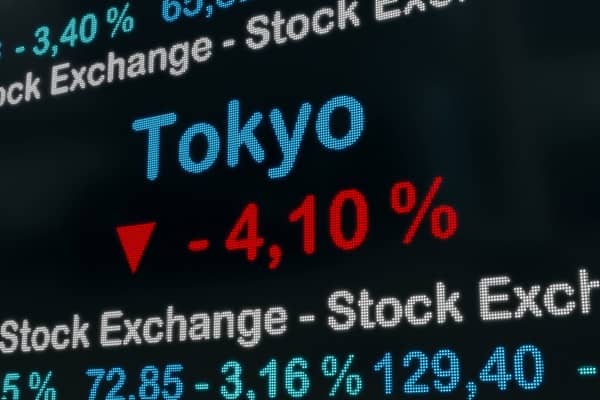When the GENIUS Act passed the US Senate this summer, US-based serial entrepreneur Silvina Moschini felt a sense of long-awaited vindication. The co-founder of Unicoin and SheWorks! had spent years navigating an uncertain regulatory landscape, building a compliant, asset-backed model even as U.S. policy stalled.
The signing of the GENIUS Act into law established the first comprehensive regulatory framework for US-issued stablecoins. Supporters argue it will enhance trust, drive mainstream adoption and bolster the dollar’s status as the global reserve currency, web3 news outlet Cointelegraph wrote in an article published on Friday, August 1st.
With stablecoins now gaining traction in global finance, the GENIUS Act could also prove a boon for the developing world, attract institutional interest and drive a resurgence in decentralised finance (DeFi). However, concerns remain over unresolved issues, such as the regulation of foreign issuers, doubts about the ban on yield-bearing stablecoins and the potential dominance of corporate and traditional finance players, Cointelegraph added.
Most Read on Euro Weekly News
 “>
“>
Belgian’s Bel20 index hits 18-year all-time-high
 “>
“>
Spain and UK Finance News Round-Up, August 14
 “>
“>
Large fire erupts in a Manhattan apartment building
‘Brings legitamacy to the space’
“The GENIUS Act is the most important piece of legislation for the crypto economy,” said Moschini. “It brings legitimacy to the space, it brings a clear set of rules, and it allows entrepreneurs to play in a fair and square environment.”
For Moschini, the new framework transforms stablecoins from a regulatory headache into a foundation for growth. After repeated run-ins with the SEC under Gary Gensler’s leadership, her team persisted in designing Unicoin with compliance in mind. “We did it following all the rules,” she said.
The Act, which requires fully backed, licensed US stablecoin issuance, is more than a compliance milestone for her business. It signals the start of a broader era of financial inclusion.
“We believe that with this clarity we can finally bring all the innovation that’s been built offshore back to the U.S., which is the biggest economy in the world,” she says. “This act sets the stage for a new wave of innovation. It’s not about getting rid of regulation; it’s about having the right regulation. And now we do.”
A transformative moment
Across the Atlantic, Niall Dennehy, co-founder of Nestifi, frames the legislation as a long-overdue turning point, according to a LinkedIn post. “This is one of the most transformative moments in fintech regulation for over a decade,” he says. “Until now, stablecoin issuers operated in a grey area. The GENIUS framework changes that.”
By requiring full reserve backing, monthly disclosures, and strict U.S. licensing, the Act introduces transparency as a core feature. “This is the dawn of truly transparent money,” he says. “For the first time, we have a payment rail where any user can verify the system’s solvency in real time.”
That transparency positions regulated stablecoins as the backbone for cross-border payments, embedded finance, and programmable money. Dennehy advises startups to focus on product and growth rather than building regulated infrastructure themselves. “Your competitive advantage isn’t going to come from running a compliant financial institution. Let partners handle the regulatory overhead so you can focus entirely on product, growth, and your core mission.”
Others are more cautious
But as American entrepreneurs cheer, others are more cautious. Rodney Prescott, Head of Industry Relations at Zekret, has spent decades working in payments and regulatory technology. He sees the Act as less a neutral rulebook and more a tool of monetary influence.
“The Genius Act is not much different from a deposit-taking requirement,” he said. Stablecoin issuers must hold liquid U.S. assets like Treasuries, echoing traditional banking rules.
The consequence, he warns, is a reinforcement of U.S. dollar dominance. “It’s about giving dominance to the U.S. dollar,” Prescott said. In countries with weak or unstable currencies, dollar-backed stablecoins could replace local money. “If U.S. dollar-based stablecoins remain the stablecoin of choice, everyone else’s sovereign monetary policies are basically undermined.”
Issuers outside the U.S. face steep barriers. “If you’re a European startup or an issuer in a smaller market, to issue a dollar-based stablecoin under this Act, you’d need to hold U.S. treasuries and potentially meet U.S. banking requirements. That sets a very high barrier to entry,” Prescott added.
Prescott draws a parallel to Charles de Gaulle’s warning about the “exorbitant privilege” of the dollar. If major corporations like Amazon, Walmart, or Google issue dollar-backed stablecoins, he said, “we’re looking at a global payment system tied directly to U.S. Treasuries. That’s not a neutral infrastructure, it’s a geopolitical shift.”
The act leaves a critical security gap
Beyond questions of monetary influence, the Act leaves another critical gap: cybersecurity.
Yevheniia Broshevan, the Ukrainian co-founder of blockchain security firm Hacken, warns that the law says little about the digital foundations of the stablecoin ecosystem in a tweet on X.
“Code integrity, operational resilience, incident response, none of that is in the Act,” she said. “If stablecoins are to serve as trusted infrastructure, security can’t be left out of the equation.”
Broshevan’s concern highlights a paradox. The Act treats stablecoins as systemically important enough to require full reserves but does not address the technical resilience of the systems that hold and move them. A single vulnerability could trigger cascading effects, regardless of how well the tokens are collateralised.
A milestone and a mirror
Even Moschini, a leading supporter of the Act, notes that passing a law is only the first step. Policy must be implemented effectively to deliver on its promise. The GENIUS Act creates a foundation for regulated stablecoins, but its impact will depend on execution, by issuers, by regulators, and in the code itself.
For now, the US celebrates clarity, while international voices inject a note of caution. The GENIUS Act offers a framework for transparency and trust, but also raises questions about monetary dominance and cybersecurity gaps, Jillian Godsil, Blockleaders CEO and Founder, told Euro Weekly News.
“It is both a milestone and a mirror,” the award-winning Irish author added. “It reflects America’s intent to lead in digital money on its own terms. Whether that leadership stabilises or disrupts the global system will depend on what happens next, onshore, offshore, and deep in the code.”




